IN THIS GUIDE:
- What is diamond cut?
- How Diamond Cut Creates Sparkle?
- Diamond Cut Grades Explained
- Key Ingredients of a Great Diamond Cut: Proportions, Symmetry, Polish
- Cut for Different Diamond Shapes
- Tip: Choosing the Right Diamond Cut
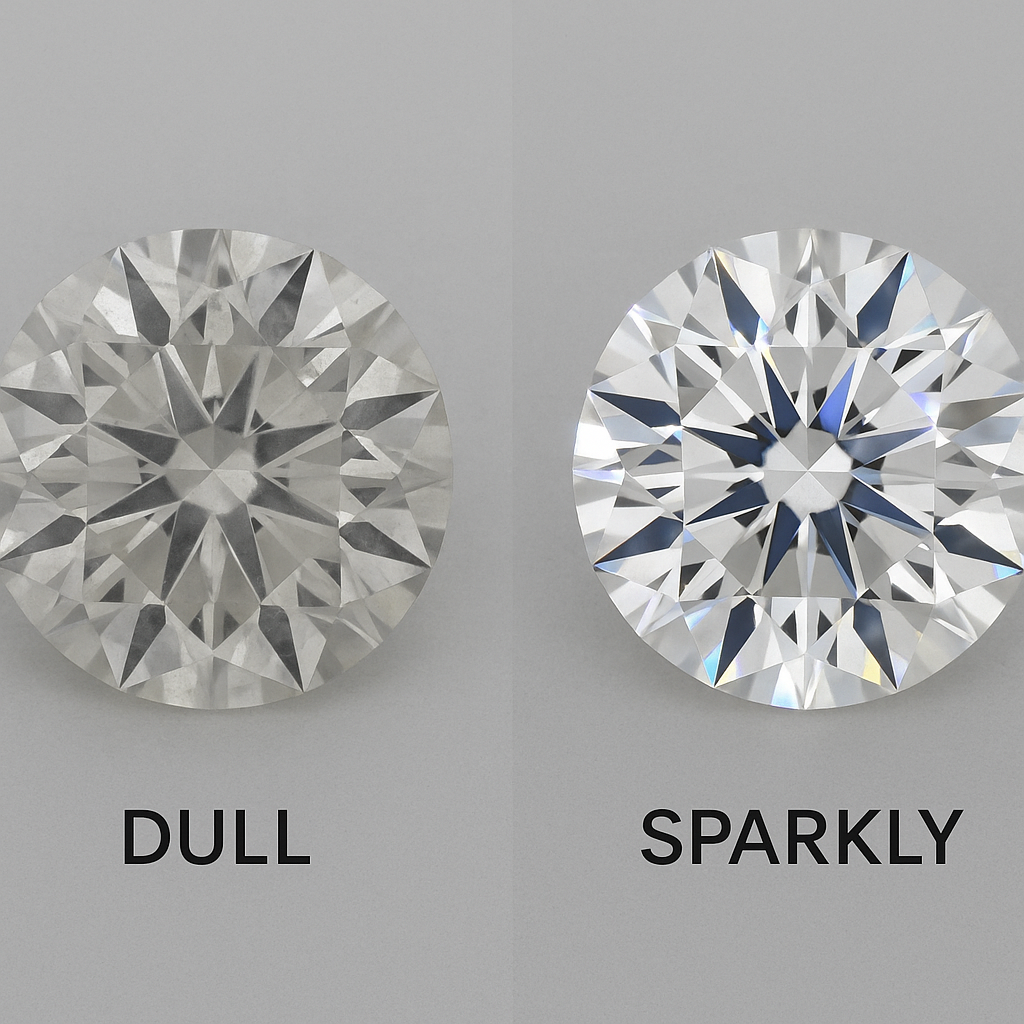
Cut is the MOST Important of the 4Cs
Cut isn't about nature (like color or clarity) or just weight (carat). It's about craftsmanship. A great cut means the diamond is shaped and faceted perfectly to handle light.
Think of the cutter as an artist. They shape the stone precisely so it sparkles its best. A diamond with a poor cut, even if it has perfect color and clarity, will look dull because light escapes instead of reflecting back. That's why cut is the most important factor for beauty.
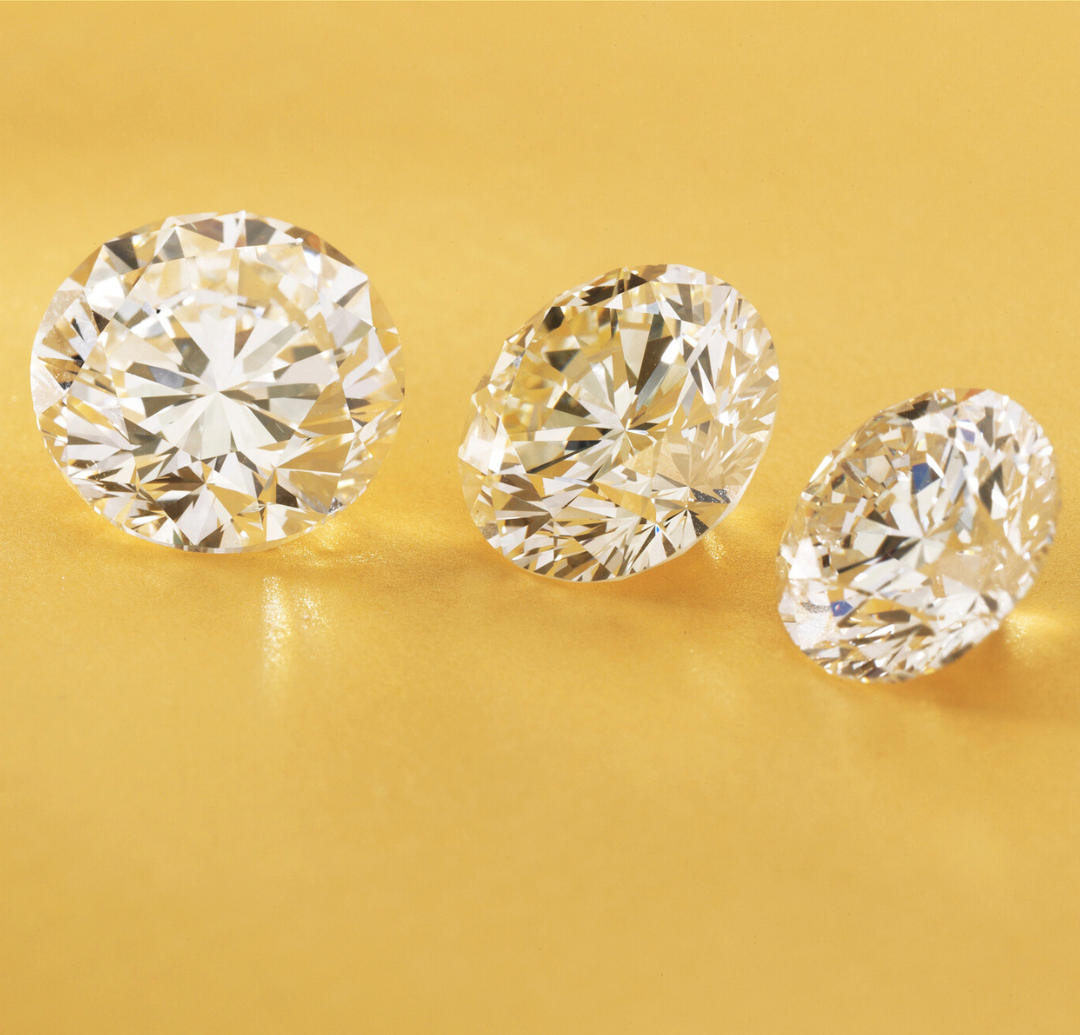
How Diamond Cut Creates Sparkle?
Diamond sparkle is light doing three things:
- Brilliance: White light bouncing back to your eye. This is the diamond's brightness. A well-cut diamond reflects light like a perfect mirror.
- Fire: White light splitting into rainbow colors. This creates those flashes of color you see.
- Scintillation: The flashes of light and dark ("sparkle") when the diamond moves. It's the diamond's lively shimmer.
Key Ingredients of a Great Diamond Cut: Proportions, Symmetry, Polish
Getting the Angles Right
Proportions
Proportions are the angles and measurements of the diamond's parts (like the top flat part, the sides, the bottom). The right angles guide light back to your eye. If angles are off – too deep or too shallow – light leaks out. This makes parts of the diamond look dark or dead.
Precise Facets
Symmetry
Symmetry is how well the facets line up. Perfect symmetry means light travels through the diamond smoothly. Poor symmetry can mess with light paths and dull the sparkle.
Smooth Finish
Polish
Polish is how smooth the diamond's surface is. Facets are polished mirror-smooth. A perfect polish lets light enter and exit cleanly. Poor polish can make the surface look hazy and reduce brightness.
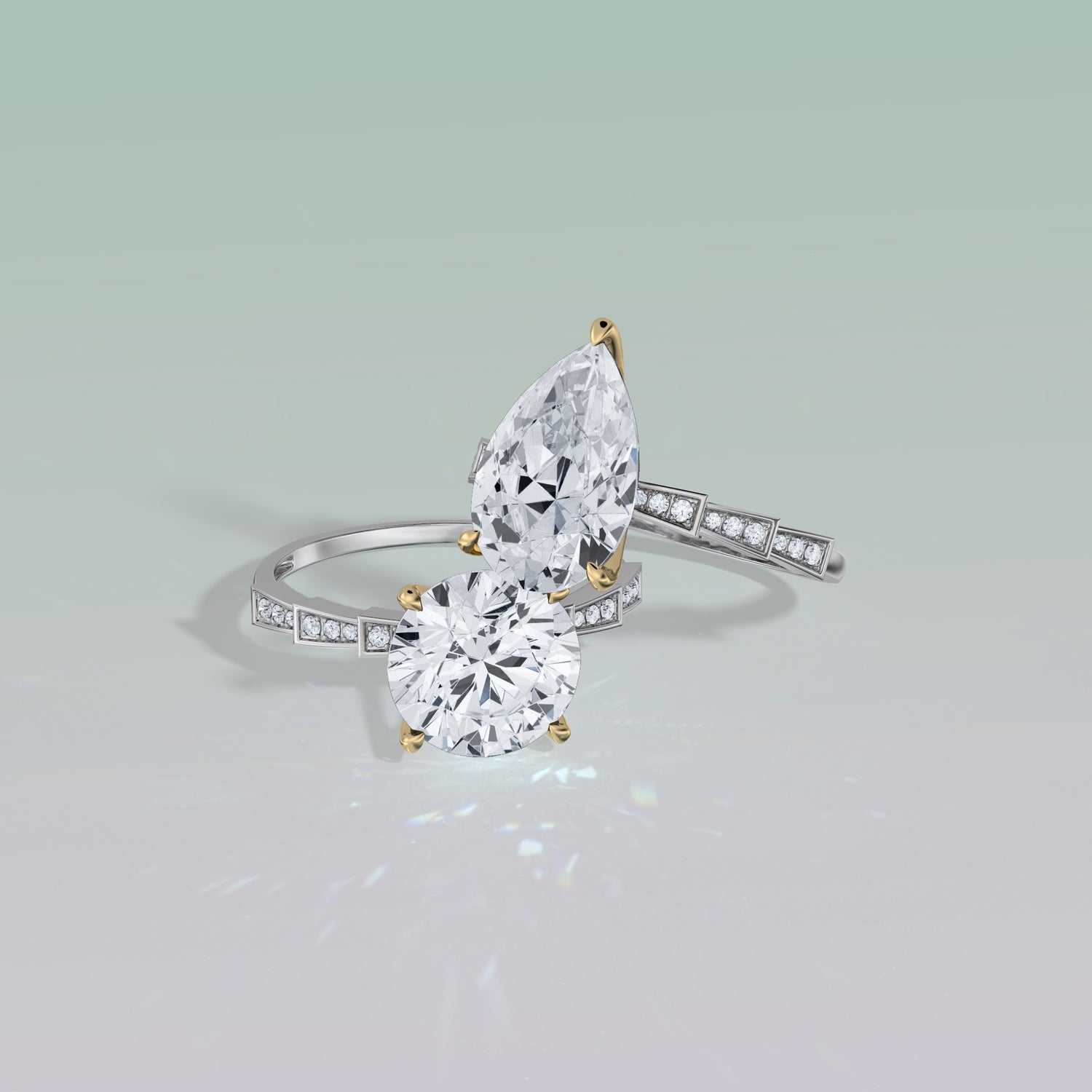
Diamond Cut Grades Explained
For round diamonds, labs like GIA give a cut grade based on these factors. The scale is simple:
- Excellent: Top quality. Max brilliance, fire, sparkle. Returns almost all light.
- Very Good: High quality, great sparkle. A beautiful diamond that often offers good value. Looks very close to Excellent.
- Good: Decent light return, but some dullness might be visible.
- Fair: Limited sparkle, noticeable dull areas.
- Poor: Significant light leakage, looks dull.
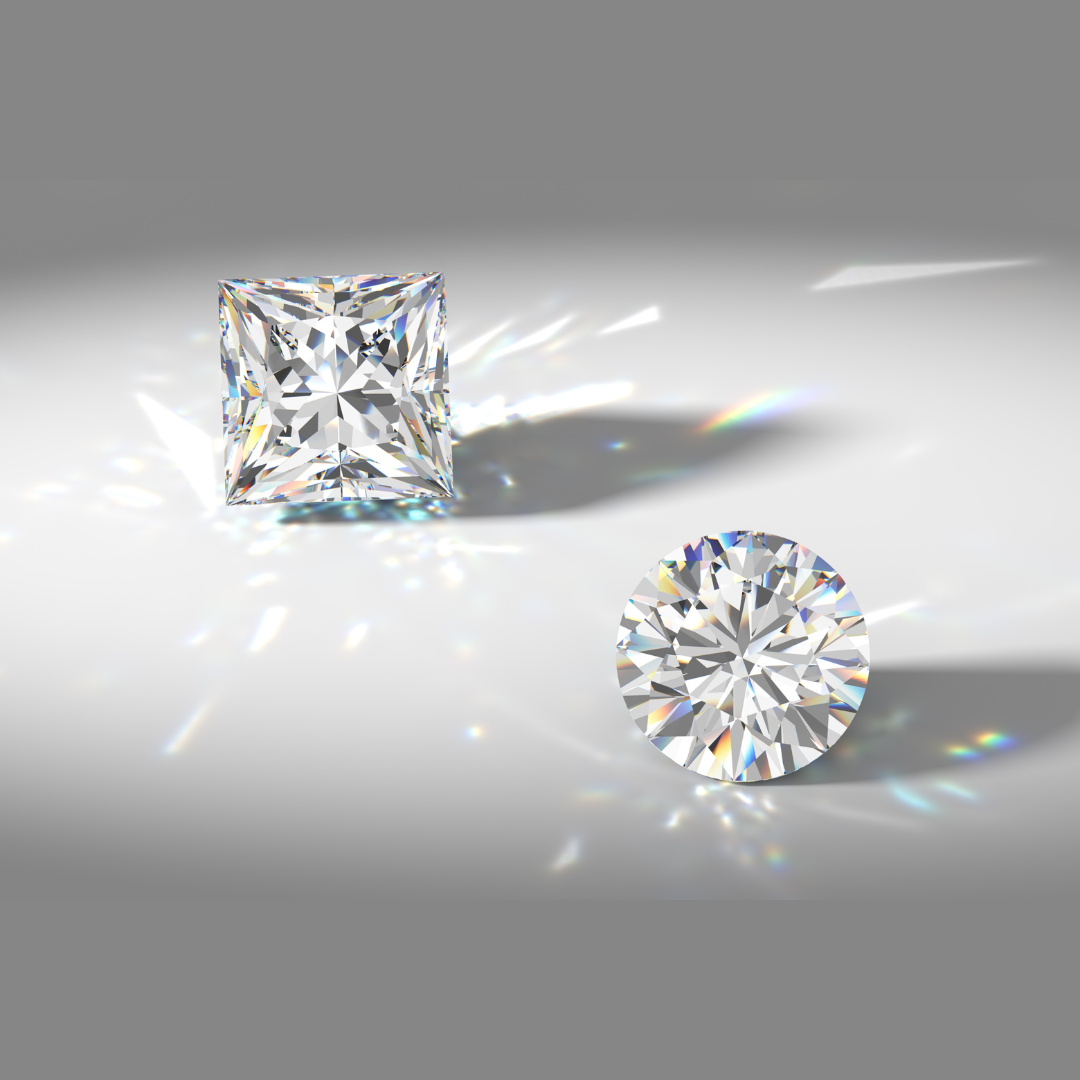
Cut for Different Diamond Shapes
Beyond rounds, you have "fancy shapes" (Princess, Oval, Emerald, Pear, Cushion, etc.). Cut is still crucial here, but it's about getting the right proportions and facet pattern for that specific shape.
There's no universal grade. You judge the cut by how the diamond looks and sparkles. For ovals and pears, watch for a "bowtie"—a dark spot in the center. A good cut minimizes this.
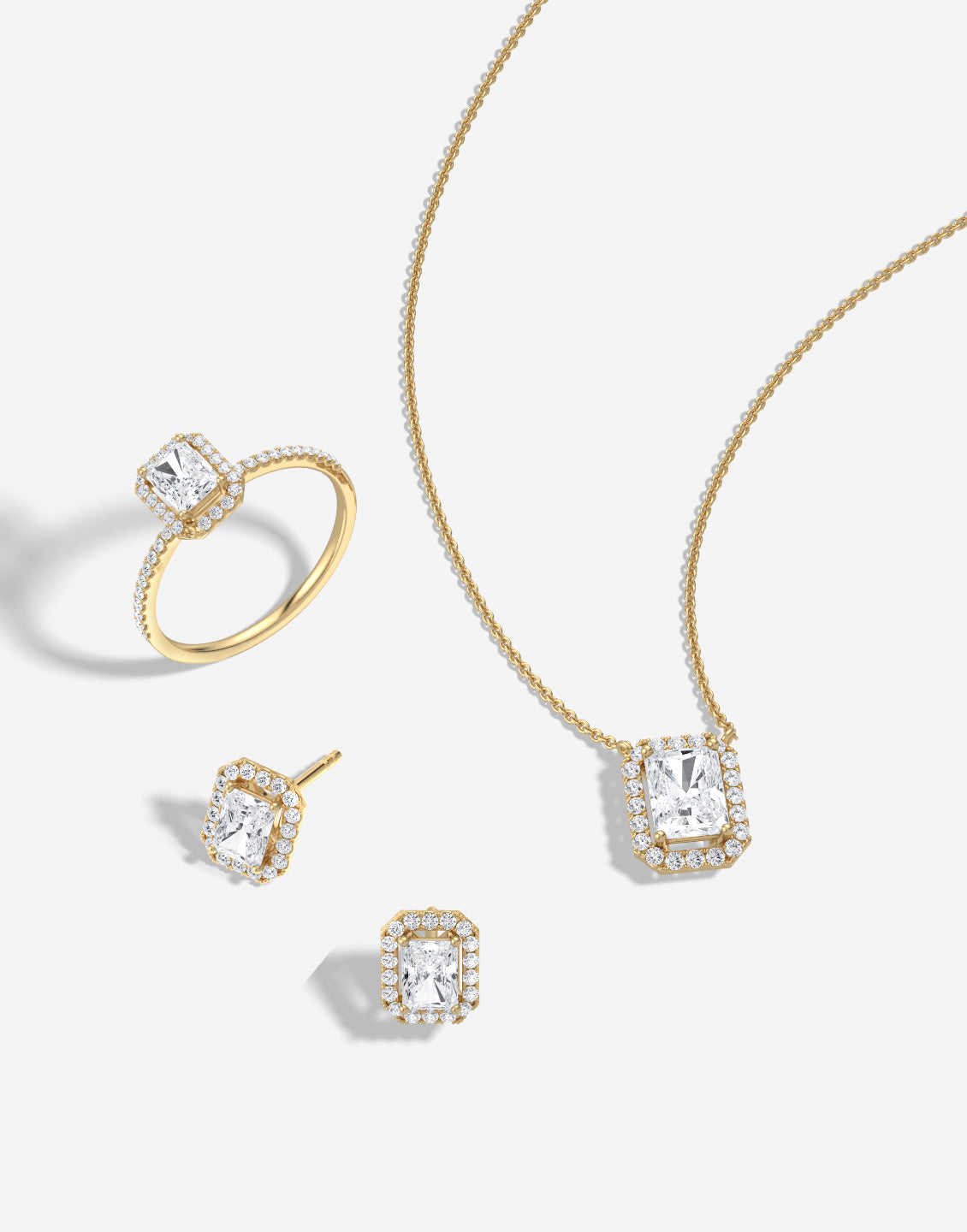
Tip: How To Choose the Right Diamond Cut for YOU
Here's how to pick a sparkly diamond:
- Cut First: Prioritize cut. It's the biggest factor in beauty.
- For Rounds: Stick to Excellent or Very Good. Very Good can be a smart choice for value.
- For Fancy Shapes: Look closely at videos and images. Check for even sparkle and avoid strong bowties. Get an expert opinion if unsure.
- See it in Different Lights: How a diamond sparkles changes with the light. Try to see it in various conditions.
- Balance Budget: An Excellent cut is ideal, but a beautiful Very Good cut lets you spend more on size, color, or clarity.
Leonids focuses on well-cut diamonds that sparkle. Shop your favorite diamond jewelry today!
About the Author: This guide was written by Oggi, our jewelry expert. She has over 10 years of experience in precious metals and gemology.
Our team regularly consults with master jewelers and metallurgists to ensure we provide the most accurate, up-to-date information on jewelry metals and trends.
Last Updated: May 2025
Collection list
FAQs
It's all about cut quality - Excellent/Super Ideal cuts cost more because they take serious skill and waste more rough diamond. Round Brilliants usually top the price chart (same carat weight) since they're crazy popular and need ultra-precise cutting for max sparkle.
Round Brilliants are the sparkle champs: their facet pattern is literally engineered to bounce back the most white light (brilliance) and rainbow flashes (fire).
Note: Same answer for first two Qs - top-tier cut = higher price, and Rounds lead that category.





